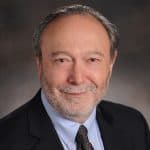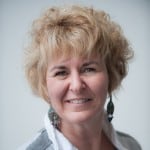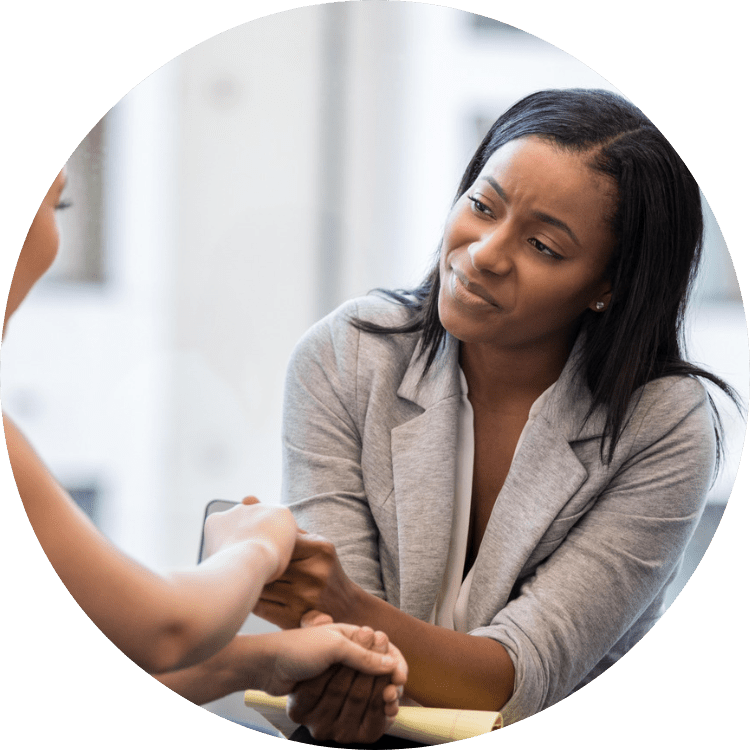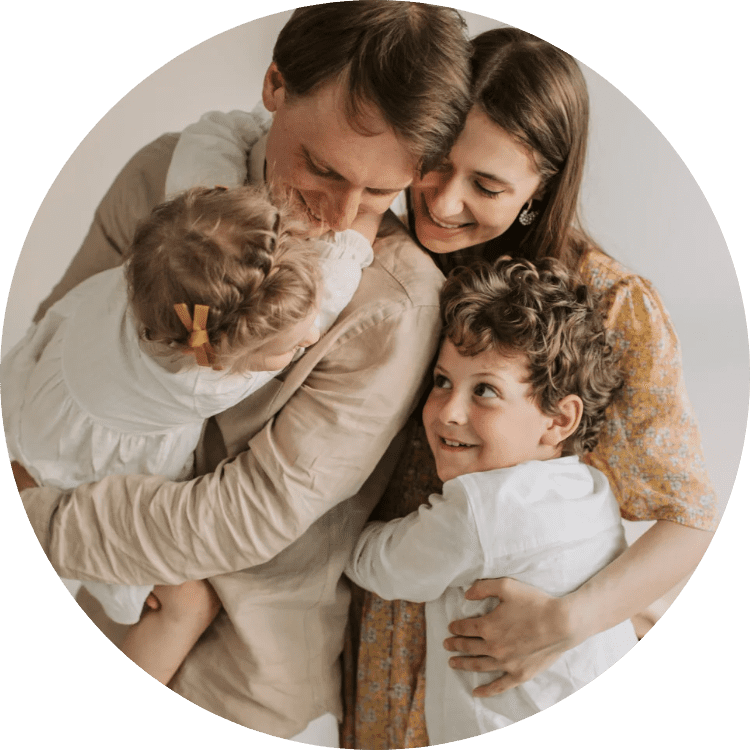It’s now more rewarding than ever to become SSP Certified!
Foundational Safe and Sound Protocol (SSP) Training
The Foundational Safe and Sound Protocol (SSP) Training is an on-demand and self-paced training designed for licensed mental, neurodevelopmental and physical health professionals looking to enhance their ability to help clients and deliver Dr. Stephen Porges’ Safe and Sound Protocol (SSP).
This training delivers foundational knowledge of Polyvagal Theory and the science behind the SSP, expanded practical training on SSP delivery, and actionable steps to integrate the SSP into your practice.
Get started with training for only $399 – plus earn CEUs!
Once trained, an active subscription is required to deliver the SSP.

Online, on-demand training builds skills and expands your knowledge. Plus, earn CEUs!
Step-by-step learning, from the foundations of Polyvagal Theory to practical integration of the SSP.
Created and delivered by leading researchers and clinicians, including the creator of Polyvagal Theory and the SSP, Dr. Stephen Porges.
Link Polyvagal Theory to practice with the most current evidence and best practices, using real world data and clinical research.

Get ready with deeply discounted training, use the set of support tools to enhance the therapeutic experience, and regulate with indispensable listening programs. All that’s missing is you!

Get ready with deeply discounted training, use the set of support tools to enhance the therapeutic experience, and regulate with indispensable listening programs. All that’s missing is you!
If you’ve been considering becoming SSP certified, now is the time! The SSP Training is more impactful than ever with new advanced training units for continued education and an improved focus on delivery, research and evidence! Plus, earn CEUs!
Explore the Benefits of Foundational SSP Training
This multidisciplinary training covers both theory and practical application, and is well aligned with other leading therapeutic interventions.
Get started for only $399.

Online, On-Demand Videos
Complete anytime, anywhere. Self-study at your own pace. Most providers finish the 5-6 hours of required content within two weeks.
Approved AOTA CEU Course
Unyte Health Inc is an approved provider of AOTA. This course is approved for point five (0.5) AOTA CEUs, or five (5) contact hours. To complete the course, learners must complete all five (5) required hours, in addition to passing a learning assessment.
Step-by-Step Learning
From the foundations of Polyvagal Theory to practical integration of the SSP, gain rich clinical training to advance your practice and unlock your clients’ healing potential.
Qualifies You to Deliver In-person and/or Remotely
Expand your practice and meet clients where they are, helping more people with remote delivery training.
Link Polyvagal Theory to practice with the most current evidence, real world data and clinical research.
Commitment to clinical rigor and quality means a training program you can trust and implement with confidence.
Learning Resources on Integrative Modalities and Therapeutic Approaches
Including the SSP and other bottom-up and top-down approaches, EMDR, SE™ and sensory considerations. Learn how the SSP serves as a support to unlock the power of existing modalities and increase client accessibility to those approaches. Enhance your clinical toolkit and learn how the SSP can help you to grow your practice.
Supplemental Training Units
Continue your education with new and modality-specific units available once your certification is complete.
Unlimited Access to the Course Materials
Revisit content as often as you like.
Training Outline
This training program is built on the latest advancements in Polyvagal Theory
and the clinical experience of a global community of SSP providers.
PART I: The Science
- Introduction to Polyvagal Theory
- Key principles of Polyvagal Theory in practice and the autonomic nervous system, with Deb Dana, LCSW
- Origin story of the SSP, with Dr. Porges and Karen Onderko
- Foundational components of the SSP
- Integrating activity, with Kim Barthel, OTR/L, C/NDT
Learning Outcomes
- Describe the autonomic nervous system (ANS) functions.
- Organize the hierarchy of the autonomic nervous system and corresponding clinical and physiological response patterns, according to Polyvagal Theory.
- Apply the organizing principles of Polyvagal Theory (co-regulation, neuroception, and the autonomic hierarchy) to the therapeutic relationship and process.
- Differentiate the ventral/dorsal division of the vagus nerve, interaction with the HPA axis, function of the vagal brake, and influence on autonomic state regulation.
PART II: The Delivery
- Applying core therapeutic skills, such as psychoeducation, co-regulation and titration
- Identifying nervous system tendencies and supporting regulation through autonomic mapping
- Connecting your nervous system tendencies and regulation in relation to your client
- Clinical applications in sensory processing and program planning
- Structuring listening sessions and post-delivery supports
- Current SSP evidence and real world case studies
- Step-by-step guide to SSP delivery and what that means for your clients
- SSP intake and assessment
- Delivery models, including in-person, remote, and hybrid delivery
- Sensory considerations and clinical applications for SSP delivery
Learning Outcomes
- Summarize the current evidence for music-based interventions, including listening therapies.
- Apply polyvagal principles to guide the ‘right degree of challenge’ in supporting autonomic regulation with clients.
- Understand the relationship between auditory processing and behavioral regulation from a neuroanatomical and clinical perspective, and how vocal prosody and frequency changes in sound can influence autonomic state in clients.
- Identify three (3) strategies for creating a safe therapeutic context for a client presenting with a significant trauma history and auditory hypersensitivity.
- Identify signs of autonomic shift in clients.
- Be aware of our autonomic state and how it influences clients through neuroception and co-regulation.
PART III: Practical Integration
- Practical, actionable steps that address logistical and financial considerations of integration
- Introducing the SSP to your clients
- Pricing considerations and marketing
- Accessing your network of other SSP providers, and the benefits and value of becoming part of the SSP provider community
- Available resources to help guide you and your clients throughout the SSP experience and beyond
Learning Outcomes
- Understand how assessments can support treatment planning.
- Design and structure listening therapy sessions that enhance social engagement and participation.
- Apply therapeutic practices including autonomic tracking, psychoeducation, regulating activities with clients.
- Describe how to deliver listening therapies safely and effectively using the appropriate equipment and processes for various client presentations and settings
Meet the Contributing Experts
The Foundational SSP Training was developed by the foremost experts in Polyvagal Theory and the clinical application of the Safe and Sound Protocol, including Dr. Stephen Porges himself. You’ll learn from practitioners and researchers from a variety of fields as diverse as the global community of certified SSP providers, including licensed clinical social workers (LCSW), occupational therapists (OTR/L), medical doctors (MD), Somatic Experiencing® Practitioners (SEP), EMDRIA Approved Consultants (EMDR), licensed marriage and family therapists (LMFT), psychologists, psychotherapists, PhDs, and many more.
Explore the full list of contributors.
Click here to review the financial and non-financial disclosures for course instructors.

Stephen W. Porges, PhD, is a Distinguished University Scientist at Indiana University, where he is the founding director of the Traumatic Stress Research Consortium at the Kinsey Institute. He is the author of the Polyvagal Theory, a theory that emphasizes the importance of physiological state in the expression of behavioral, mental and health problems. Based on this theory, Dr. Porges created the Safe and Sound Protocol™, now used by thousands of therapists around the globe.

Deb Dana, LCSW, is a clinician, consultant, author and speaker specializing in complex trauma. Deb’s work shows how an understanding of Polyvagal Theory applies to relationships, mental health and trauma, and how we can use an understanding of the organizing principles of Polyvagal Theory to change the ways we navigate our daily lives.

Kim Barthel, OTR/L, C/NDT, is an award-winning Occupational Therapist, multi-disciplinary teacher and best-selling author who is active in supporting people in many contexts internationally. Kim is passionate about understanding complex behavior, neurobiology, trauma-sensitive practice, attachment, sensory processing, mental health, leadership and learning.
Stephen Porges, Ph.D., Unyte’s Chief Scientific Advisor, Author of PVT, and Creator of SSP
Training Presenter
Stephen W. Porges, Ph.D., is a Distinguished University Scientist at Indiana University, where he is the founding director of the Traumatic Stress Research Consortium at the Kinsey Institute. He is the author of the Polyvagal Theory, a theory that emphasizes the importance of physiological state in the expression of behavioral, mental and health problems. Based on this theory, Dr. Porges created the Safe and Sound Protocol™, now used by thousands of therapists around the globe.
Deb Dana, LCSW, Author, and Unyte Advisor
Training Presenter
Deb Dana, LCSW, is a clinician, consultant, author and speaker specializing in complex trauma. Deb’s work shows how an understanding of Polyvagal Theory applies to relationships, mental health and trauma, and how we can use an understanding of the organizing principles of Polyvagal Theory to change the ways we navigate our daily lives.
Kim Barthel, OTR/L, C/NDT
Training Presenter
Kim Barthel is an award-winning Occupational Therapist, multi-disciplinary teacher and best-selling author who is active in supporting people in many contexts internationally. Kim is passionate about understanding complex behavior, neurobiology, trauma-sensitive practice, attachment, sensory processing, mental health, leadership and learning.
Liz Charles, Ph.D., MBBS MRCGP DRCOG
Training Contributor
Dr. Liz Charles is a physician in the U.K. with a passion for neuroscience relating to social and emotional well-being. Inspired by the Polyvagal Theory, she now uses this lens to explore the wide-reaching effects of trauma on the brain and body, and specializes in the remote delivery of SSP for adults experiencing the effects of complex trauma.
Doreen Hunt, OTR/L
Training Contributor
Doreen Hunt has been a pediatric Occupational Therapist specializing in sensory processing disorders and Ayres’ Sensory Integration therapy for more than 30 years. She is a Unyte Clinical Advisory Board member and co-owner of Children’s Therapy of Woodinville in Washington, and has been using the SSP since it was originally released in 2017.
Heather MacDuffie, Ph.D., MSW
Training Presenter
Heather MacDuffie’s private psychotherapy practice, founded in 2003, focuses on adults with complex psychiatric and medical presentations. She brings a scientifically rigorous frame of reference to understanding, articulating and applying Polyvagal Theory to the many rich schools of psychotherapy, including analytic, object relations, Jungian (symbolic), cognitive, relational and somatic/experiential.
Ana do Valle, OTR, SEP, SIPTC
Training Presenter
Ana do Valle has been an Occupational Therapist for more than 40 years, with 28 years of experience working in hospitals and 17 years with school systems, and has a private practice in Boulder, Colorado. Ana is experienced in delivering the SSP when working with clients who experience emotional dysregulation and sensory processing differences.
Karen Onderko, CAB and Founding Polyvagal Institute (PVI) Member
Training Contributor
After leaving her career in financial risk management and investment banking in New York City, Karen Onderko turned her attention toward the brain and studied neuroscience at the University of Colorado Denver in 2009. Her focus on researching executive functioning led her to become more interested in clinical applications of neuroplasticity. Karen has been instrumental in the growth and knowledge of the SSP within the provider community.
Amanda Edwards, LPC
Training Contributor
Amanda Edwards is EMDR-trained, and provides play-based and nurturing therapy and wellness services for women, children and families in the Parker, Colorado area. Her specialty is working with children and their mothers, supporting them to understand one another and grow together to feel connected each and every day.
Allison Hunt, OTR/L
Training Contributor
Allison Hunt is a licensed Occupational Therapist and relationship coach in Australia. Allison has been using the SSP in her clinic-based pediatric OT practice since 2018 and is passionate about incorporating Polyvagal-informed therapy modalities in support with the SSP.
Shelly Melroe, LMFT
Training Contributor
Shelly Melroe is a Licensed Marriage and Family Therapist trained in dialectical behavior therapy (DBT) and EMDR, as well as several specialized protocols like Cravings and Urges, preverbal and somatic focus. The SSP has led Shelly’s practice to include Polyvagal and trauma methods that work outward from the nervous system.
Paula Scatoloni, LCSW, SEP
Training Presenter
Paula Scatoloni (she/her), LCSW, CEDS, SEP, is a Somatic Experiencing® Practitioner, certified SSP provider, co-founder and faculty of Embodied Recovery Institute, and Licensed Clinical Social Worker in Durham, North Carolina. She has developed protocols and clinical services at institutions, such as Duke University, and has co-developed programs including The Embodied Recovery Institute and Ai Pono Outpatient Treatment Center for Eating Disorders.
Les Aria, Ph.D., Pain Psychologist
Training Presenter
Dr. Les Aria specializes in treating psychophysiological disorders, functional neurological disorders, chronic pain and medically unexplained conditions. His passion for mind-body interventions fosters a one-of-a-kind approach to helping patients relate differently to their pain and, as a result, move toward pain recovery and wellness.
Jill Hosey, MSW RSW
Training Presenter
Jill Hosey is a Master of Social Work (MSW) and Registered Social Worker (RSW), EMDRIA Approved Consultant, expert SSP provider and lead author of the EMDR + SSP Combined Delivery Guidelines. Jill is a trauma therapist and clinical consultant in a collaborative private practice, providing integrative therapy across the lifespan with a focus on the treatment of complex trauma, attachment trauma and dissociative disorders.
Njoki Wamae, MBACP
Training Presenter
Njoki Wamae is a masters-level psychotherapist offering a range of family psychotherapy services, parenting support and training, and has been delivering the SSP since 2019.
Cathy Cavaliere, OTR/L
Training Contributor
Dr. Cathy Cavaliere has been a practicing clinician for more than 20 years, with 15 years working in pediatrics, including early intervention, schools and private practice. Her doctoral work used Polyvagal Theory to guide her investigation of the physiologic components of sensory processing and the differences in heart rate variability (HRV) in response to sensation in children with autism and typically developing children.
Jason Tafler, Unyte’s Founder and CEO
Training Contributor
Jason Tafler, founder and CEO of Unyte, has been interested in health, neuroscience and the mind-body connection for as long as he can remember. He always knew he wanted to make a difference in the world. What he didn’t know was the path life would take him to get there.
Rebecca Knowles, OTD, OTR/L, RYT
Training Contributor
Rebecca Knowles is a clinician, researcher and educator specializing in sensory processing and mental health. She has worked in diverse settings as an occupational therapist, including schools, hospitals, outpatient clinics and substance use treatment centers.
Kelly Beins, OTR/L
Training Contributor
Kelly Beins is Unyte’s Clinical Practice Manager and OTR/L. Her work in sensory integration started in 2005 and has since been combined to include areas such as behavioral health interventions, mental health diagnoses, picky eating and more. With more than 28 years of experience in occupational therapy, Kelly mentors other therapists in parent partnership and use of an integrative model of practice.
Leah Dawang, Unyte’s Strategic Partnerships Manager, SE™ Student – Advanced
Training Contributor
Leah Dawang is Unyte’s Partnership Cultivation Manager, envisioning all members of the helping and healing communities linking arms in love and transforming the world. She is an SSP provider in the final stages of becoming a Somatic Experiencing® practitioner and is passionate about all things that lead to love, including the nervous system, spoken word, and important, hard and beautiful conversations.
The Foundational Safe and Sound Protocol (SSP) Training was designed to provide you with valuable clinical skills that can immediately be applied in sessions with your clients.
Learn from renowned experts Dr. Stephen Porges, Deb Dana, Kim Barthel and more in this on-demand, self-paced training built on the latest advancements in Polyvagal Theory. Plus, earn CEUs!
Let’s Connect!
Discover how nervous system regulating therapeutic solutions can create lasting change for your clients, or discuss the right training and subscription program for your practice.
About Continuing Education Units (CEUs)
- This course is designed for licensed healthcare professionals, including occupational therapists, psychologists, counselors, and other clinical providers at an introductory level.
- This self-paced course is available on-demand, starting on Aug 1, 2024
- No pre-requisites are required to attend the course.
- This course is delivered in a Distance Learning—Independent format: Activity that occurs via the Internet (e.g., recorded webinar), eLearning courses, or written text (e.g., article, self-study manual) where no faculty is actively engaging the learner during the course itself.
- This course is fully accessible in compliance with the ADA.
- Contact our Client Success Team at [email protected] for any questions regarding registration for the course, to request special accommodations, or to provide feedback on your learning experience.
- Cancellation policy: Once learners have registered for the course, refunds and cancellations will not be permitted. Learners should review all course materials prior to registration, to be sure the contents are aligned to their expectations. Learners are encouraged to contact the client success team ([email protected]) to ask any questions about the course prior to registration.
Foundational SSP Training Learning Outcomes
- Describe the autonomic nervous system (ANS) functions.
- Organize the hierarchy of the autonomic nervous system and corresponding clinical and physiological response patterns, according to Polyvagal Theory.
- Apply the organizing principles of Polyvagal Theory (co-regulation, neuroception, and the autonomic hierarchy) to the therapeutic relationship and process.
- Differentiate the ventral/dorsal division of the vagus nerve, interaction with the HPA axis, function of the vagal brake, and influence on autonomic state regulation.
- Summarize the current evidence for music-based interventions, including listening therapies.
- Apply polyvagal principles to guide the ‘right degree of challenge’ in supporting autonomic regulation with clients.
- Understand the relationship between auditory processing and behavioral regulation from a neuroanatomical and clinical perspective, and how vocal prosody and frequency changes in sound can influence autonomic state in clients.
- Identify three (3) strategies for creating a safe therapeutic context for a client presenting with a significant trauma history and auditory hypersensitivity.
- Understand how assessments can support treatment planning.
- Design and structure listening therapy sessions that enhance social engagement and participation.
- Apply therapeutic practices including autonomic tracking, psychoeducation, regulating activities with clients.
- Identify signs of autonomic shift in clients.
- Be aware of our autonomic state and how it influences clients through neuroception and co-regulation.
- Describe how to deliver listening therapies safely and effectively using the appropriate equipment and processes for various client presentations and settings







